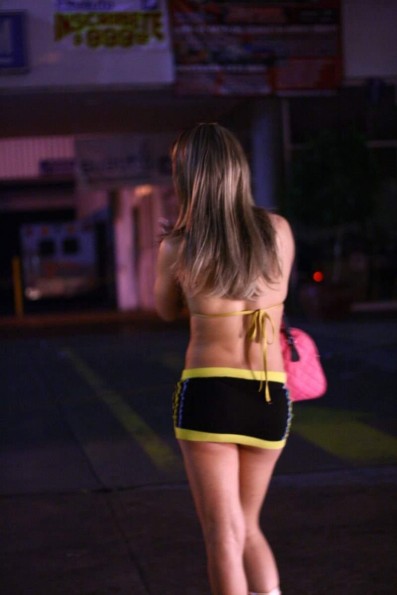- Dettagli
- Categoria: Women views on news
- Pubblicato: 03 Marzo 2014
 Call for legislated consistency in policing prostitution to protect street sex workers.
Call for legislated consistency in policing prostitution to protect street sex workers.
In 2006, the Merseyside Police declared crimes against street sex workers hate crimes.
To date, they are the only police force in the UK to treat crimes against street sex workers in this way.
Liverpool had the highest sex worker murder rate in the UK after London and Glasgow, and police decided that something radical had to be done to reverse the trend.
According to the Home Office research report, ‘Tackling the demand for prostitution: a rapid evidence assessment of the published research literature’, published in 2004, women in prostitution suffer higher rates of murder, rape and physical violence than other groups in the UK’s population.
And the mortality rate for women in prostitution in the UK is twelve times higher than the national average for those in London.
More than half have been raped or seriously sexually assaulted and at least three quarters have been physically assaulted.
With figures this high, it is difficult to understand why London’s Metropolitan Police (the Met) haven’t thought more seriously about adopting the Merseyside model of policing prostitution.
In Merseyside, people in prostitution are treated like victims when a crime is committed against them. They are not treated like criminals and as a result, perpetrators are being convicted.
Treating crimes against sex workers as hate crimes has enabled Merseyside Police to achieve an 85 per cent conviction rate for crimes of sexual assault and a 67 per cent conviction rate for rape.
The national average rate of conviction for rape stands at 6.5 per cent, so their ‘model’ is definitely having an impact.
Mariana Popa was killed recently while working as a street sex worker in London. Her death made clear the significant differences in the opinion of senior police officers of different forces in how best to deal with crimes of this nature.
At the time of Popa’s murder, the Met were running an enforcement campaign against sex workers and to avoid detection – and arrest – by patrolling officers, the women were forced to work on their own.
Her fellow street sex workers believe that if the Metropolitan Police had adopted the Merseyside Model of policing crimes against sex workers, Mariana Popa would not have been forced off the streets to work in isolation; her murder could have been prevented.
Writer Ruth Jacobs, a former sex worker and victim of rape, believes that all police forces should be adopting the Merseyside Model of policing to protect sex workers from crimes of sexual assault and rape.
In an interview with the F-Word, she said: ‘Most sex workers find it difficult to report rape or violence because of the stigma associated with prostitution.’
Treating crimes against sex workers as hate crimes would help to remove this stigma and enable those who are victims to have the courage to come forward. It would give them strength and the belief that they would be listened to.
In 2007, Bonnie Barratt, a 24 year-old street sex worker working in the Whitechapel area of East London, was murdered by Derek Brown. She was his second victim in Jack the Ripper-style killings.
She had become a drug addict and had been arrested 37 times for prostitution. She was convicted four times for loitering for the purposes of prostitution.
When sentencing Brown to a minimum of 30 years in jail Judge Martin Stephens told him both the women he had murdered “were vulnerable, plying their trade on the streets, in each case falling into your hands precisely because of their availability and their lack of protection.”
Bonnie Barratt’s mother, Jackie Summerford, strongly believes better policing could have prevented her daughter’s death.
Speaking to the Independent, she said: ‘About four months before Bonnie was murdered, another prostitute visited Brown in his flat. This sex worker thought he was acting “very oddly” and left as fast as she could. But she did not warn the police of her fears about him.’
Both Ruth Jacobs and Jackie Summerford believe the Merseyside Model of policing affords superior protection to street sex workers and supports them in approaching the police about concerns and actual assaults.
The Association of Chief Police Officers (ACPO) now recommends that this Merseyside Model of policing is adopted by police forces nationwide as best practice.
This has not yet occurred, and Jackie Summerford, Ruth Jacobs and Alex Bryce are behind a campaign asking the Home Secretary, Teresa May, to make the Merseyside Model of policing law for crimes against sex workers.
To date, nearly 64,000 people have shown their support and signed the petition asking for a law to protect women like Bonnie.
By prioritising the protection of sex workers who are victims of crimes instead of enforcing soliciting laws, a level of trust is built between the victim and the police force.
Adopting the model nationwide would mean working in this way would provide a recognition of the risks faced by street sex workers; some men target these women precisely because they believe that they are unprotected.
Leggi tutto... http://feedproxy.google.com/~r/WomensViewsOnNews/~3/kyiOyvclO64/








